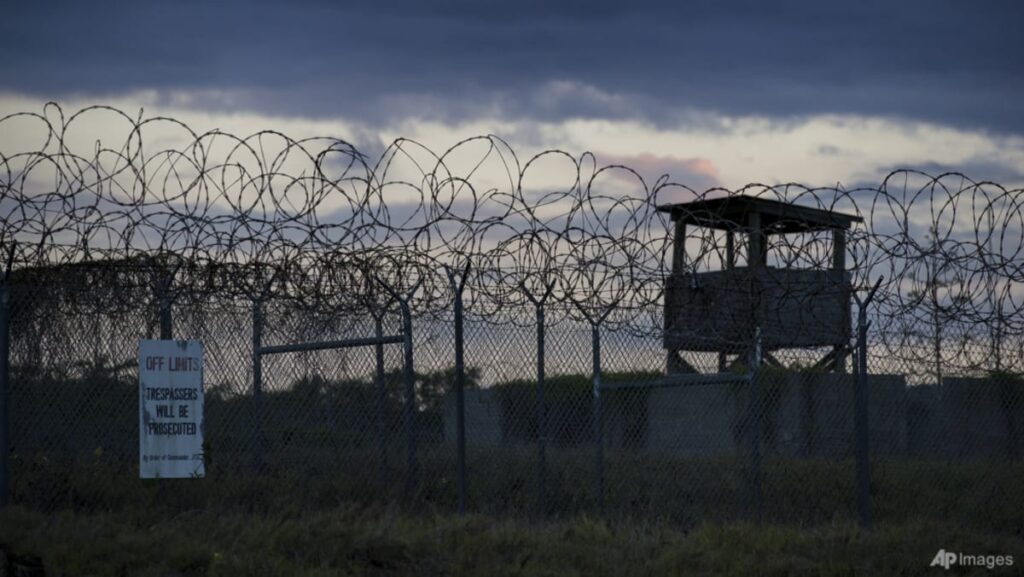DRAWING FROM PAST EXPERIENCE
Diplomatic efforts to repatriate Farik and Nazir started years ago, with then-foreign minister Rais Yatim reportedly stating in 2009 that their return was being sought.
Malaysia is no stranger to taking back its citizens who have gone abroad for causes linked to militancy or extremism, and putting them through rehabilitation post-return.
Several Southeast Asian countries saw a wave of their citizens heading to Syria and Iraq after the Islamic State (IS) militant group declared a caliphate in 2014.
Malaysian police estimate about 122 Malaysians travelled to Syria and Iraq from 2011 to 2019, Ahmad El-Muhammady of the International Islamic University Malaysia noted in a policy brief for the International Centre for Counter-Terrorism think tank last year.
After IS’ fall, Malaysia’s efforts to repatriate those who had gone there to fight, as well as their families, faced protests due to fears it would endanger public safety and national security, Ahmad noted in his paper titled “Managing the Returning Foreign Terrorist Fighters and Their Families: Malaysian Experience”.
Despite the plan to bring back as many people as possible, Malaysian authorities successfully repatriated 16 individuals before the operation was suspended, he wrote.
Reasons for the suspension include prospective returnees’ reservations, the government losing contact with some of them after the US withdrawal from northern Syria, and concern among officials over working with a non-state actor in charge of the camps there.
From that experience, Ahmad wrote there is a need for a “holistic assessment” of foreign-trained fighters and their families, collaboration between the authorities and civil society organisations in reintegration efforts, and education opportunities for detainees and their families.
Aizat agreed the government has to implement a comprehensive and sustainable rehabilitation and reintegration programme.
The men must be given a chance to rejoin society through employment opportunities and participation in social activities, just like any other citizen and without stigma, he said.
“This reintegration must occur under close supervision by the authorities. Without such efforts, the risk of reoffending or returning to violent extremism significantly increases,” he added.
“With proper support and reintegration, they can transform into individuals who contribute positively to the nation.”
He said that the authorities must appoint qualified experts in fields such as psychology and criminology to address the root causes of their behaviour.
“This cannot be a one-off effort or overly reliant on theological correction alone. Instead, it should address the psychological issues and grievances of these two former high-value detainees stemming from their past radicalisation and mistreatment at the Guantanamo detention facility,” he said.
Farik, for one, has sketched the various forms of torture he allegedly experienced during interrogation at Guantanamo, which he submitted during his trial as part of his mitigation plea.
He and Nazir were arrested in Thailand in 2003 and placed in solitary confinement at a secret location operated by the US Central Intelligence Agency (CIA) before being transferred to Guantanamo Bay in 2006.
In its statement on Dec 18, the US Defense Department said it was focused on “responsibly” reducing the detainee population and ultimately closing the Guantanamo Bay facility.
It said 27 detainees remain there: 15 are eligible for transfer; three are eligible for a Periodic Review Board; seven are involved in the military commissions process; and two detainees have been convicted and sentenced by military commissions.
The detention centre is infamous for allegations of torture and has seen about 780 detainees since starting operations in 2002, with 753 transferred.
Criminologist Haezreena Begum Abdul Hamid of Universiti Malaya (UM) said there is a need to trust the rehabilitation process for the repatriated Malaysian duo.
“They are being monitored by the police; therefore I don’t think there’s much to worry about,” she said.
“I worry more about their vulnerability and the fact that many people would want to approach them.”
Added Haezreena, who works on deradicalisation cases: “We might get people who want to hail them as heroes, we might get researchers who want to get their narratives, media who want stories that might make them feel stressed and suffocated.”
Confidentiality is important and law enforcers and experts need to be allowed to do their work, she said.
“You don’t know what they are facing, whatever experiences they went through at one of the harshest prisons in the world, PTSD – you should think of them as human beings,” she said, using the acronym for post-traumatic stress disorder.
Providing an update on the men on Dec 18, Malaysia’s inspector general of police Razarudin Husain said: “Both individuals were received in good and healthy condition. They are very grateful to return home and finally reunite with their families.”
https://www.channelnewsasia.com/asia/malaysia-guantanamo-bay-returnees-nazir-lep-farik-amin-rehabilitation-4831401


